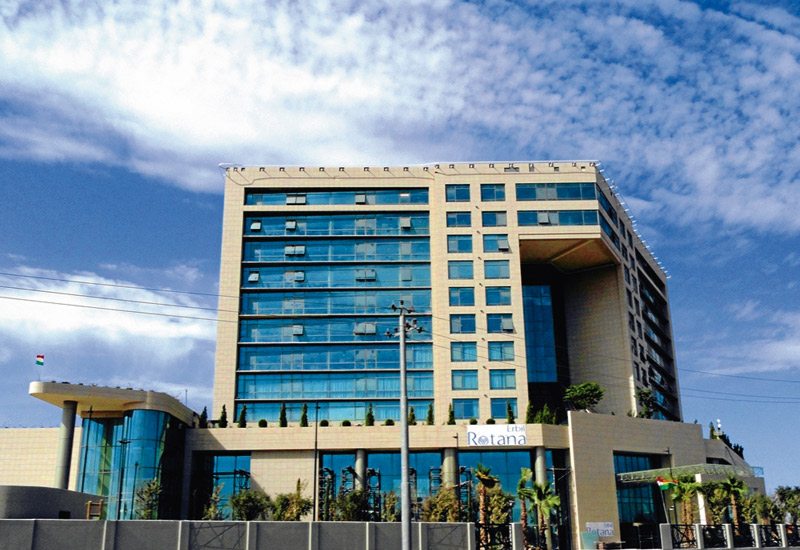Hotel chains including Rotana, Safir Hotels, Best Western, Swiss-Belhotel International and Millennium & Copthorne Middle East have made successful advances into Iraq in 2011, with several other global chains signalling their intentions to follow suit.
And, according to experts on the market, hotel investors that want to enter the country and hotel chains looking to secure a flag there should do so soon — before the window of opportunity closes.
Kyle Stelma, emerging markets managing director of Dunia Frontier Consultants, observed: “Iraq is one of the best investment destinations in the frontier markets. However, there’s a caveat, and it is that there is a window of opportunity that is open now for probably 12-18 months. This window will close”.

| Advertisement |
Speaking at the Investment in Iraq Summit 2011 organised by Range Hospitality — which is developing the Al Rawdatain Gardens Hotel in Karbala — Stelma said there were several benefits for investors, from 100% of repatriation of all profits, to the fact the government “will be in the black this year due to oil prices”, to the reduction in violence.
“My firm did a quick back-of-the-envelope study on relatives — Baghdad is by far statistically a safer city to do business with than Moscow, St Petersburg, Sao Paolo or even Washington DC, and that’s not something that got us a lot of notoriety in the press,” he said.
“Iraq has definitely weathered the storm. The outlook for 2011 we think is wholly positive — it will be stable,” said Stelma.
This sentiment would likely be supported by the Iraq Tourism Board/Al Rafidain Company for travel and tourism, which took 100m² of exhibition space at the recent Arabian Travel Market.
This was bolstered by the announcement that the country has been named a tourism hotspot of the future in the recent WTM Global Trends Report, compiled in association with Euromonitor, which reported that business tourism to Iraq rose by 58% in 2009.
Mark Walsh, group exhibition director, Reed Travel Exhibitions, organiser of ATM, commented: “There were more than 1.3 million visitor arrivals in 2009, and while religious tourists from Iran accounted for 75% of these, the potential to increase these figures is vast given a projected GDP growth of 7% annually and projects such as a new oil export terminal in Basra”.
Increased airlift
Airline activity — the prelude to hotel development — has also been boosted significantly in recent times. Emirates Airline has already added Basra to its destinations, as have Etihad and Qatar Airways.
Flydubai now travels to Gassim and Erbil, while Air Arabia has added Najaf. Gulf Air has also added Basra to its flight schedule, making four flights per week from Manama to Basra, its fourth Iraqi city.
In November, Emirates will commence passenger flights to Baghdad four times a week, and the group has also announced an area manager for Iraq, Raed Al Rahma.
“As a new destination there is wide scope to further push our presence in Iraq, meeting new customers and implementing fresh innovations to further increase our market share within the country. Having been with Emirates for more than 20 years, working across various departments in the company, I am keen to take on this new challenge,” said Al Rahma.
“Baghdad is a strategically important destination for Emirates,” said His Highness Sheikh Ahmed bin Saeed Al Maktoum, chairman and chief executive, Emirates Airline and Group.
“Its geographical location, coupled with the fact that few international carriers operate there, makes it the perfect destination for us to tap into and drive revenue from. With more than five million residents in Baghdad, and its surrounding districts, this new service will provide them with direct access to our vast global network.”
“Our launch into Basra, Iraq in February this year has been a resounding success, with flights operating in both directions at capacity. In the four months since we began operations to Iraq, thousands of passengers have flown with Emirates between Basra and Dubai — seeing the route perform well above expectations.”
Internationally there is also growth from carriers, including Austrian Airlines, Lufthansa and other European airlines, while a number of carriers in the Middle East and North Africa are also adding Iraq destinations or increasing frequency of their existing routes to the country, including Nile Air, Turkish Airlines and Iraqi Airlines.









 Search our database of more than 2,700 industry companies
Search our database of more than 2,700 industry companies









